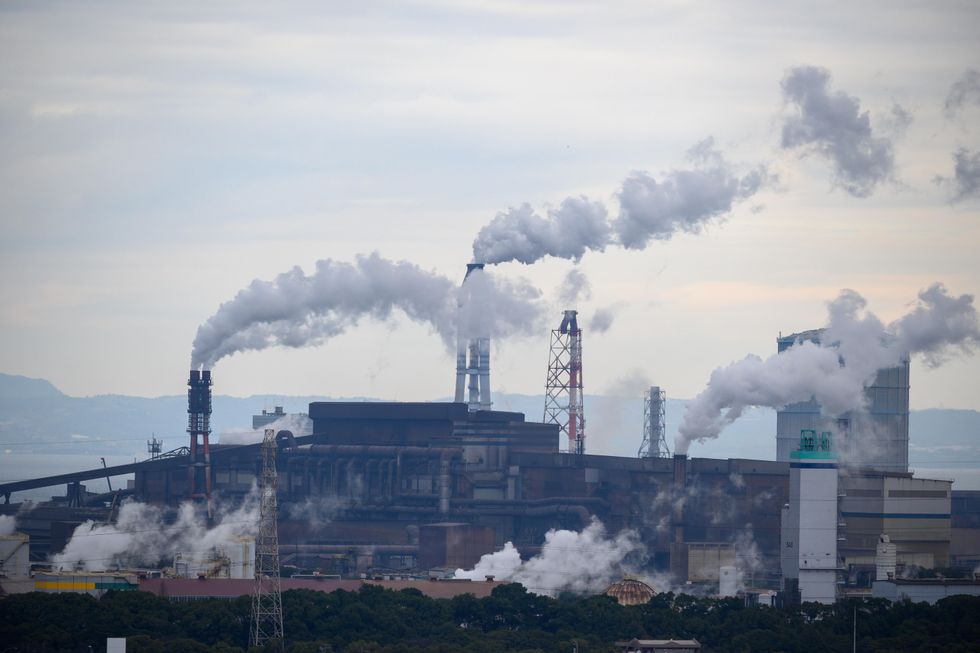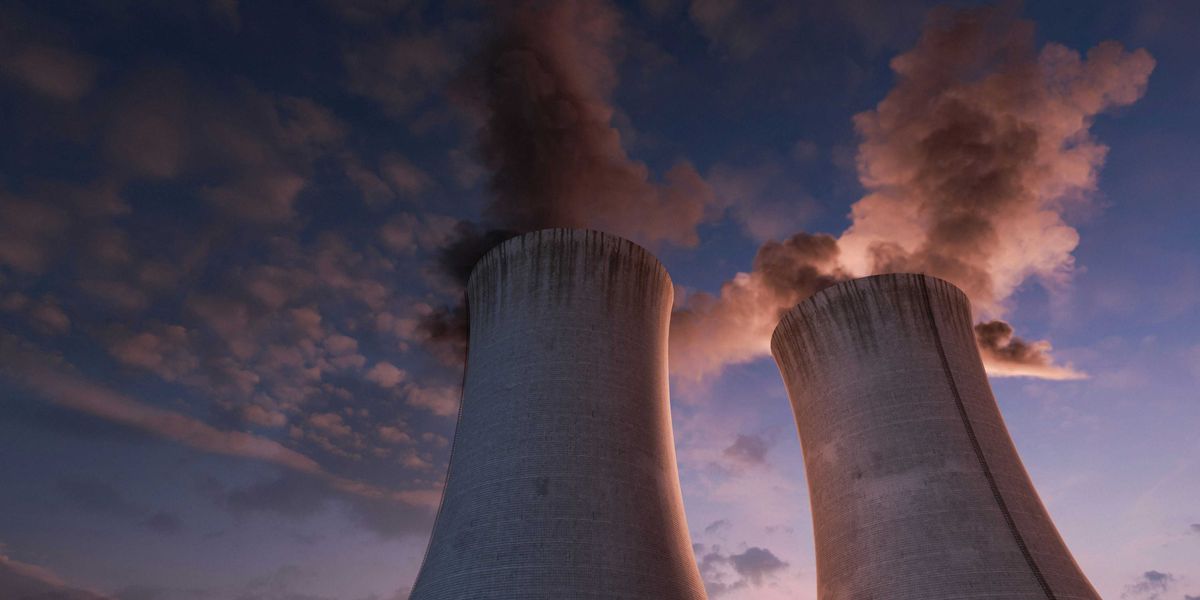overflow
Charleston's battle with wastewater woes
In Charleston, S.C., environmental advocates are gearing up for legal action against Charleston Water for failing to curb frequent sewage overflows, raising health and environmental concerns.
In short:
- Frequent storms in Charleston, S.C., lead to sewage overflows, contaminating local ponds and streets with wastewater, and triggering public health concerns.
- Charleston Water has reported numerous sewage spills since 2015, with legal action threatened by environmental groups for non-compliance with federal environmental laws.
- The city’s aging infrastructure, compounded by climate change, struggles to manage the increased frequency and intensity of rainfall and sea-level rise.
Key quote:
“These are basic infrastructure things: how you handle sewage waste. Not only is it a water quality issue, it’s a plain old public health issue. That’s untreated sewage and all the bacteria and pathogens that come with it.”
— Andrew Wunderley, director of Charleston Waterkeeper
Why this matters:
Many cities and towns rely on outdated sewage systems that were designed for a different era—one with less intense rainfall and smaller populations. These systems, often a century old, struggle to handle the volume of water from heavy rainfalls, leading to the discharge of untreated sewage into rivers, lakes, and even streets, posing significant risks to public health and local ecosystems.
What is environmental health?
Examining a massive influence on our health: the environment.
We've been reporting on environmental health for 20 years. But what is environmental health? You've got questions, and we have answers.
What is environmental health?
Environmental health is a branch of public health that monitors the relationship between human health and the environment, examining aspects of both our natural and man-made environment and their effect on human wellbeing.
What is an example of environmental health?

Environmental health is a broad area of study — everything from the climate to the food we eat to the air we breathe plays into environmental health. A few specific examples include:
- Air pollution: Living near factories or heavy traffic worsens air quality and leads to health impacts on the lungs and heart such as asthma and increased risk of heart attacks or stroke.
- Water contamination: Drinking lead-contaminated water can cause IQ loss, behavioral issues, learning disabilities and more. Infants and young children are most at risk.
- Toxic chemicals in consumer products: Phthalates, a class of chemicals that are widely used in consumer products, are known endocrine-disruptors, meaning they hijack your body’s hormones and can cause a wide array of health impacts including increased risk of cancer and fertility issues.
What is the role of environmental health?
The role of environmental health research is to examine areas of the environment that impact our health so that we can make personal and policy changes to keep ourselves safe and improve human health and wellbeing.
Why is environmental health important?

Environmental health impacts every one of us.
We reap the benefits of clean air, clean water, and healthy soil. If our environment is unhealthy, with toxic chemicals saturating our resources and pollution abundant, then our health also suffers.
It is also an important field of study because it looks at the “unseen” influences on your health.
Many individuals may not associate their health problems with air or water quality, or with what clothes they wear, makeup and household goods they use, or food they eat.
That’s because not every example of environmental health problems are obvious: some chemicals, for example, build up slowly over time in your body: a small dose may not seem to bring harm, but repeated small doses can lead to later impacts.
- BPA absorbed through plastic containers, cans, receipts, etc. lingers in the body and the build-up over time increases risk of cancer, diabetes, liver failure, and more.
- PFAS are known as ‘forever chemicals ’— they don’t break down and are widely used, so small exposures are frequent and contribute to immune system and reproductive damages, heightened cholesterol levels, and more.
- Mercury from eating seafood and shellfish can impact neurological development of fetuses in the womb, and populations that regularly consume mercury-heavy seafood have shown mild cognitive impairment.
Also, individual susceptibility can differ: for example, one member of a household can experience illness, asthma, migraines, etc. from chemicals found in their water supply while another member of the same household is just fine, such as the case in a young girl’s reaction to benzene in her water from living near fracking wells.
Certain variables play a role in susceptibility and level of adverse health effects such as age, gender, pregnancy, and underlying health conditions. Studies suggest fetuses, infants and children are much more at risk to experience lifelong health problems from toxic chemical exposure.
Rate, duration, and frequency of exposure to toxic chemicals and other influences from our environment all factor into our health.
Good environmental health = good human health.
What environmental health problems affect our health?

There are many environmental health issues that affect human health. These include:
Air pollution — nine out of 10 people currently breathe air that exceeds the World Health Organization’s guideline limits for air pollution worldwide. This mainly affects people in low and middle-income countries, but in the United States, people that live in cities, or near refineries or factories, are often affected as well.
Air pollution also ramps up during wildfire season.
Read more: Breathless: Pittsburgh's asthma epidemic and the fight to stop it
Water pollution — as of 2014, every year more people die from unsafe water than from all forms of violence, including war. Water is the ‘universal solvent’, meaning it can dissolve more substances than any other liquid on Earth. Thus, it is too easy for toxic chemicals to enter our water supply.
Read more: Sacred Water: Environmental justice in Indian Country
Lack of access to health care — yes, this is an environmental health issue! Having an accessible health care system is part of one’s environment. Difficulty getting health care can further impact one’s health.
Poor infrastructure — from “food deserts” to lack of transportation services, living in an area with poor infrastructure can impact your health.
Read more: Agents of Change: Amplifying neglected voices in environmental justice
Climate change — climate change-induced heat waves, increased frequency and severity of large storms, droughts, flooding, etc. have resulted in health problems and even death.
Chemical pollution — chemical pollution can be sneaky: the chemicals in your everyday products, from shampoo to deodorant to your clothing to the food you eat, can directly affect your health. These chemicals are often not on the label or regulated at all.
Read more: Exposed: How willful blindness keeps BPA on shelves and contaminating our bodies
How can we improve our environmental health?

Educate yourself. Environmental health is a broad topic, so this can seem overwhelming. Start by taking stock of your own personal environment. Look up air pollution monitoring in your area. Get your water tested to see its chemical makeup. Evaluate the products you use in your life — personal products like shampoo and deodorant, household cleaners, air fresheners, the foods that you eat — and see what you’re bringing into your home.
Explore the Environmental Working Group's guides to check your products for toxic chemicals.
We have additional guides to help you learn more about environmental health. Find guides to plastic pollution, environmental justice, glyphosate, BPA, PFAS and more in the Resources tab at the top of our website.
As individuals we have the power to improve some of our environmental health, but there is a pressing need for systemic change and regulation on a policy level.
We’re actively working with scientists to share their research and knowledge with politicians to advocate for science-backed policy change. But we need your help. Contact your representatives to let them know that environmental health is important to you — whether it’s air pollution in your area, contaminated water, plastic pollution, food deserts in your area, or chemicals in consumer products.
Subscribe to Above the Fold, our daily newsletter keeping you up-to-date on environmental health news.
It's 'going to end with me': The fate of Gulf fisheries in a warming world
New Zealand bans all new offshore oil exploration as part of 'carbon-neutral future'
The top 10 ocean conservation victories of 2018 (just kidding -- there were only three)
Massive crater under Greenland’s ice points to climate-altering impact in the time of humans
Nearly 400,000 US homes will experience chronic flooding by 2050
Nearly 400,000 homes in the United States will be either permanently inundated by sea level rise or suffer chronic flooding from higher tides and storm surges by 2050 if nations fail to make significant cuts to greenhouse gas emissions, according to a new analysis by the real estate company Zillow and Climate Central.









